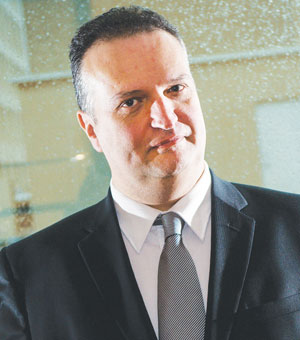With the Ontario Court of Appeal having ruled on jurors’ use of extrinsic information in a recent case, the president of the Criminal Lawyers’ Association says it may be necessary to amend the Criminal Code in order to get a better handle on the issue.

“You can’t say if jurors are or are not doing this at any level that is appreciable because you only find out in the rare case where a juror happens to mention something,” says Anthony Moustacalis.
“Maybe jurors really do obey the judge’s instructions. In my experience, it seems that they generally do. But do I really know? The answer is no. Maybe they’re Googling stuff all the time.”
The only way to know for sure and assess the necessity of any changes to the jury system, according to Moustacalis, is to amend the Criminal Code to allow researchers to interview jury members anonymously about their experiences. “The fact of the matter is that people are people and they might not always remember the limits of what they’re allowed to do or they might stray,” he says.
The comments follow the appeal court’s ruling in
R. v. Farinacci, a case that demonstrated the ease with which jurors can now find information about the defendant outside of the evidence presented during the trial. In their ruling on June 3, a panel of three judges refused to overturn the convictions of two brothers for possession of the proceeds of crime and conspiracy to traffic in cocaine. The brothers, Lucas Farinacci and Leonard Farinacci Jr., had argued their right to a fair trial had been compromised because jurors in the case, with the help of Google and other sources, had come across information about them that hadn’t come up in court.
The appeal came about as a result of a chance event at a coffee shop. Prior to sentencing but after the brothers’ conviction, someone at the coffee shop overheard one of the jurors, in a conversation with a friend, mention that another member of the jury had used Google to find information about the case that hadn’t come up in court.
Soon after, private investigators started digging into the alleged use of various types of extrinsic information in the case and the appeal followed.
On behalf of the panel, Justice Gladys Pardu wrote: “Here I am not persuaded that there is a reasonable possibility that the verdict was affected by the extrinsic information, that the trial was rendered unfair by the juror conduct or that the conviction is unsafe.”
While Moustacalis doubts jurors’ use of the Internet or other sources to find out information about the case is or threatens to be a serious problem, he concedes that as things stand — with jurors forbidden by law from speaking openly about jury proceedings — there’s no way to know for sure.
Graham Clark, a Toronto-based criminal lawyer, applauds the idea of amending Canada’s strict requirement of juror silence. “I would support that,” he says.
“I’m not sure the benefits [of the current rules] outweigh the costs,” he adds. “The costs of what we don’t get to find out are too high.”
Like Moustacalis, he believes most jurors follow the judge’s instructions. “I’ve noticed juries to be generally quite conscientious about the process,” he says.
Iain MacKinnon, a lawyer with Chitiz Pathak LLP who represented a number of media outlets in a fight to lift a publication ban in
Farinacci, notes Pardu made a point of mentioning the penalties the court could impose on jurors who research the case. If the public was more aware of the possibility of such harsh penalties, it could serve as a deterrent, he says.
MacKinnon also says he has a lot of confidence in jurors to make the right decision even if they’re aware of information not presented in court. “Just because you know something you’re not supposed to doesn’t mean the entire criminal trial is tainted. Jurors are very well capable of disabusing themselves of information that is not relevant to the trial or not in evidence.”
For related content, see "
Courts poked: tweets not sweet."

 “You can’t say if jurors are or are not doing this at any level that is appreciable because you only find out in the rare case where a juror happens to mention something,” says Anthony Moustacalis.
“You can’t say if jurors are or are not doing this at any level that is appreciable because you only find out in the rare case where a juror happens to mention something,” says Anthony Moustacalis.